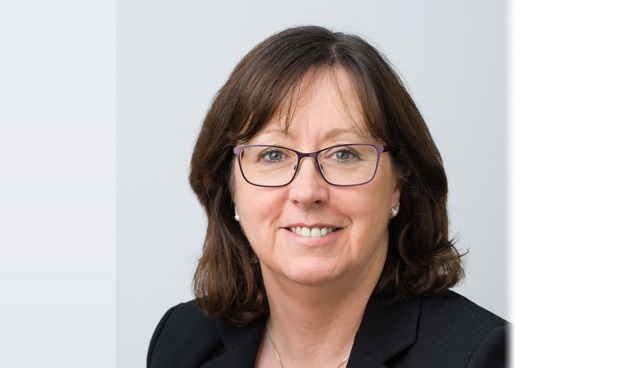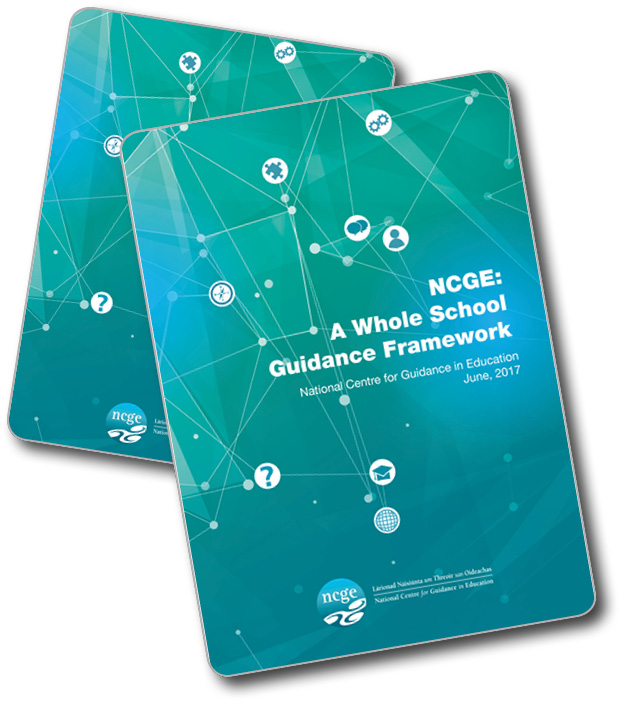Guidance provision: relevance, delivery and impact


Jennifer McKenzie, Director of the National Centre for Guidance in Education (NCGE), discusses empowering stakeholders and the general public to change their understanding of the role of guidance delivery within the education and training sector in Ireland.
There has been much discussion and media coverage about guidance counselling in our schools over the last number of years. It is important to note, however, that guidance is not only available in post-primary schools, but also in our further education and training sector (FET) as well as the higher education universities, institutes of technology and private colleges. So, what is it and why is it so important that we further integrate guidance provision into our general education and training sector? Why is it vital that we no longer consider the outcome of guidance to be the completion of one specific application process, i.e. that for entry to higher education?
Throughout this article, you will note, that I refer to ‘guidance’ and not guidance counselling. This is because guidance counselling is one of the activities of guidance provision which also includes careers and vocational counselling, educational counselling, and personal and social guidance counselling. There are different levels of competences and skills required for guidance provision; including discerning labour market information, the support and development of career management skills, the provision of information in a guidance context and the use of ICT in delivery.
In Ireland, we refer to the National Guidance Forum (2007) definition of guidance, which states that ‘guidance facilitates people throughout their lives to manage their own educational, training, occupational, personal, social, and life choices so that they reach their full potential and contribute to the development of a better society’. In 2008, an EU Council resolution provided a more detailed definition of the activities of guidance. However, one thing that is very clear from national and international definitions is that guidance must always remain impartial and that it is not recruitment or admissions service for any institution, i.e. it is not a matching service to ensure ‘bums on seats’.

The European Commission supported the work of the European Lifelong Guidance Policy Network (ELGPN) from 2008-2015. The key outcomes of the work of the ELGPN were the publication of documents on guidelines for policy development, quality assurance and evidence, along with a glossary which clearly outlines all of the various terminologies relevant to guidance provision.
Essentially, guidance helps the individual to consider their own interests, strengths, weakness, personal situations, education and career experience, and to make informed choices based on those considerations.
In 2016, the Department of Education and Skills published the Programme Recognition Framework: Guidance Counselling which outlines the DES’ competence requirements for those guidance counsellors who will work in schools and the FET sector into the future. These guidelines reflect the competences needed to support our students and adult learners – with a focus on human development, counselling skills in a guidance context, teaching and learning skills, group facilitation skills, vocational guidance theory, labour market information, career management skills development and practical guidance skills development. Networking and collaborating with colleagues is also a key competence development as providing guidance in isolation is no longer considered good practice.
NCGE launched the ‘Whole School Guidance Framework’ in September 2017. This document, developed in consultation with DES, NCCA, NEPS, NAPD and the Institute of Guidance Counsellors, (thus modelling an integrative approach), provides a framework for schools to review and plan their individual school’s guidance plan to include what guidance is provided, and how, to all students from first to sixth year. Furthermore, the framework provides an outline of the learning outcomes (or career management skills) that students could develop throughout the six years in post primary school.
Working with students over the age of 18 and adult learners in the FET sector; guidance services support the individual to consider their options, taking on board family commitments, financial constraints and career history, if any, to date. This support ranges from information on courses, and applications for grants etc., to group guidance sessions on confidence building and assertiveness to overcome disadvantage, and includes one-to-one guidance counselling and referral to external agencies for counselling, addiction services etc. where necessary.
In the FET sector, there is a myriad of guidance provision. Whether in an AEGI service, a PLC /FE College, Youthreach/CTCs or in the Prison Services. The guidance service is tailored to meet the needs of the specific target groups. The DES’ Further Education and Training Strategy 2014-2019 outlines a vision for the future development of FET guidance services.
The DES report of the Review of Guidance (in accordance with the Action Plan for Education 2017) is expected in spring 2018. This will support evidence based strategic planning of guidance services across the education and training sectors. It will also inform the development of the FET Guidance Strategy. In addition, the recent developments in apprenticeships will also have implications for the future development of guidance services.
The FET Guidance Strategy will require consultation, collaboration and the considerations of all the relevant stakeholders, including the Department of Employment Affairs and Social Protection, employer’s groups and the students/ adult learners themselves.
The model proposed in the ‘NCGE: A Whole School Guidance Framework’, could well be replicated in the FET sector. This NEPS continuum of support approach is broken down as; guidance for all, guidance for some and guidance for a few. The recognition of the different levels of guidance provision and the identification of appropriate training and qualifications will have implications for the DES, FET providers and those providing the training, but it is worth considering. We will also need to give genuine consideration to the possibility of online based e-guidance, with Skype, ‘chat’ and appropriate use of social media to provide wider access.
In conclusion, it is important that we are all aware of the role of guidance and guidance services in today’s education and economic climate. Finally, while the media tends to focus specifically on the application process to higher education, the actual focus of guidance provision and the wider supports provided can get lost in discussion about this one transition in life i.e. moving from school to the next stage. It would be very helpful to all students/adult learners if we, as stakeholders in quality guidance provision, encouraged the media to focus on all of the various benefits of engaging with a quality guidance service which by now have been well documented.






